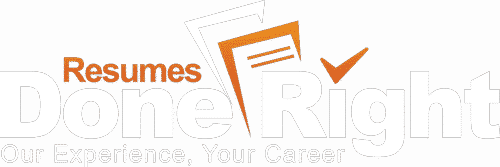How to Prepare for an Interview
The keys to getting noticed in an Interview
1. Get an Understanding of the Job
The first thing you can do is gain a clear understanding of the job being advertised. Read the advertisement carefully. If an application package is offered, be sure to grab a copy and have a good read through. You could also try looking at similar jobs in other companies or industries to gain a general understanding of how and where the role is positioned. Call the hiring manager or ad contact before you apply to seek additional knowledge of the role, for example:
- What are some of the unique challenges of the role?
- Why did the last person leave the role?
- If you were given the position, what would you need to achieve in the first 12 months to be considered an amazing hire?
The last point creates an opportunity to build rapport with someone influencing the hiring decision – you become more than a name on a page. It can also assist in tailoring your application and deciding which examples to present in the interview. Importantly, you get to personalise what you talk about to the PEOPLE interviewing, not just the position.
2. Learn About the Company Interviewing You
3. Identify Qualities the Company Values Beyond the Job Description
4. Dress to Impress
A crucial part of any interview is dressing appropriately. You want the interviewer to understand you are a professional the minute you walk in the room. Wear clothes suitable for the industry, for example:
- A corporate position – Wear a suit with a light-coloured shirt/blouse.
- A trade job – Wear clean, pressed pants and an ironed shirt/blouse (no tie or jacket).
- A retail opportunity – Consider chinos/skirt and a nice shirt/blouse.
5. Come Prepared
6. Be Early
7. A Firm Handshake Sets the Tone
8. Speak in a Clear, Strong Voice and Sit Up Straight
Interviewers will often assess your communication skills during an interview. This is the time to showcase your ability to get your message across. Here, the general rules for good communication apply, including:
- Be clear and concise – don’t talk too much or too little.
- Be confident – show the interviewer you believe in what you are saying.
- Project your voice – appropriate to the audience and size of the room.
- Be friendly – try to speak with a smile in our voice.
- Be respectful – remember who you are talking to and treat them accordingly.
- Give feedback – show the interviewer you understand what they are saying.
The interviewer will also be receiving non-verbal cues from the way you conduct yourself during the interview. Your body language, eye contact, hand gestures and tone of voice are important to ensure your verbal and non-verbal messages are in tune. Sit up straight and don’t slouch. Also pay attention to the interviewer’s non-verbal signals – that will tell you if you’ve got their attention or if you’re going off-track. Remember, communication is a two-way process.
9. Prepare Responses to Common Interview Questions
10. Ask the Interviewer Questions
11. Be confident and Identify Your Strengths
12. Be Present in the Interview
An interview can be exhausting. Letting the interviewer know you are engaged will show you have a level of focus and ability to concentrate on the task at hand. Be sure to remain interested and maintain eye contact throughout the interview. Ask questions when appropriate to generate conversation. Don’t look bored!
If you have a “clicky” pen and are prone to furious clicking in nervous situations, be sure to leave it in your pocket. Even better, leave it at home.
13. Thank the Interviewer for Their Time
14. Most Importantly, Be Yourself and Be Honest
If you’re in need of a great resume for your next job interview, contact Resumes Done Right for a professionally written resume to help you stand out from the crowd!

